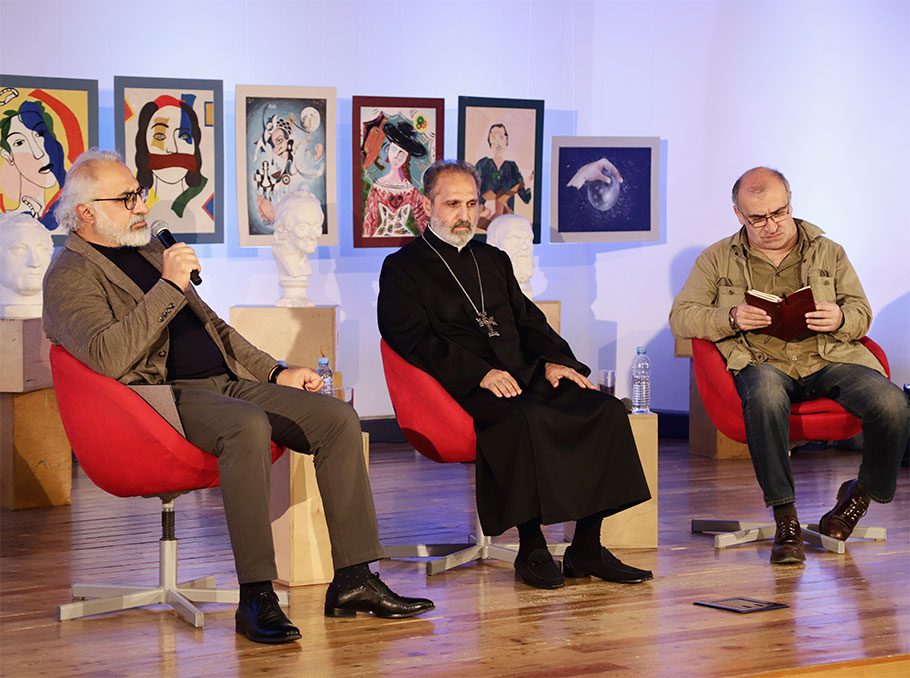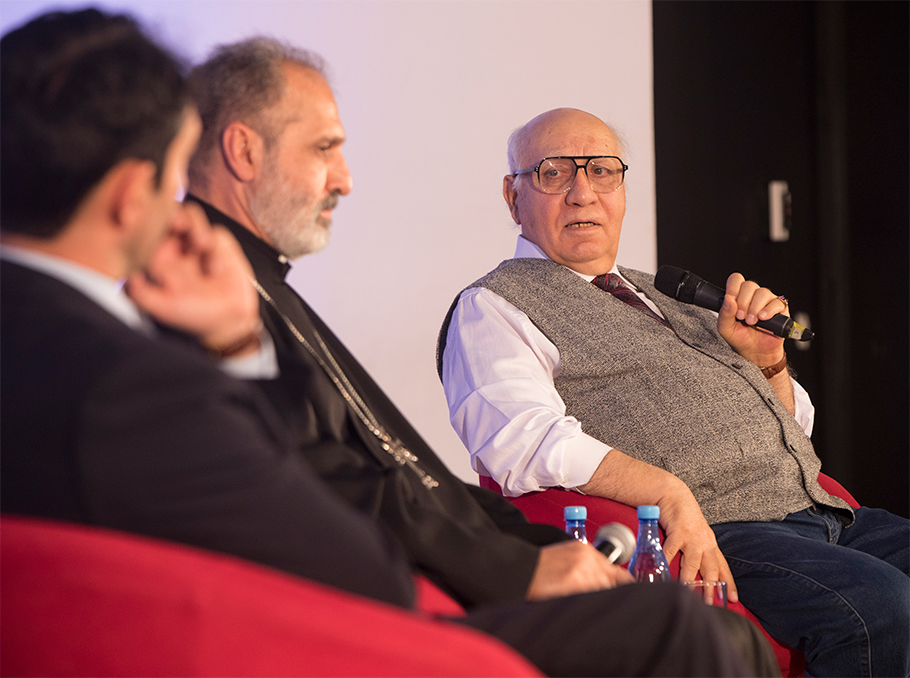“It is very difficult to reject God, especially when you do not know who you are rejecting”
“It is very difficult to reject God, especially when you do not know who you are rejecting”
Discussions about the existence of God and the necessity of religion periodically intensify in society and also in the lives of individuals. In the search for God and truth, especially young people often fall under godless influences.
To believe? To deny? To doubt? Or to not think at all about the existence of God? In the latest Identity and Values meeting at Ayb School, the topic of "Atheism, Agnosticism, Skepticism" was discussed by Aram Pakhchanyan, chairman of the Board of Trustees of the Ayb Educational Foundation, Deacon Vardan Aslanyan, PhD in Philosophy and Theology, and Fr. Mesrop Aramian, theologian and co-founder of Ayb School.
Can atheism, agnosticism, and skepticism answer the fundamental questions and quests of human life?
Vardan Aslanyan:
When we speak of skepticism or a skeptic, we first associate it with a person who doubts everything. But if we turn to the etymology of the word, the meaning is not doubt, but rather inquiry, when a person tries to investigate everything, to find solid answers to everything.
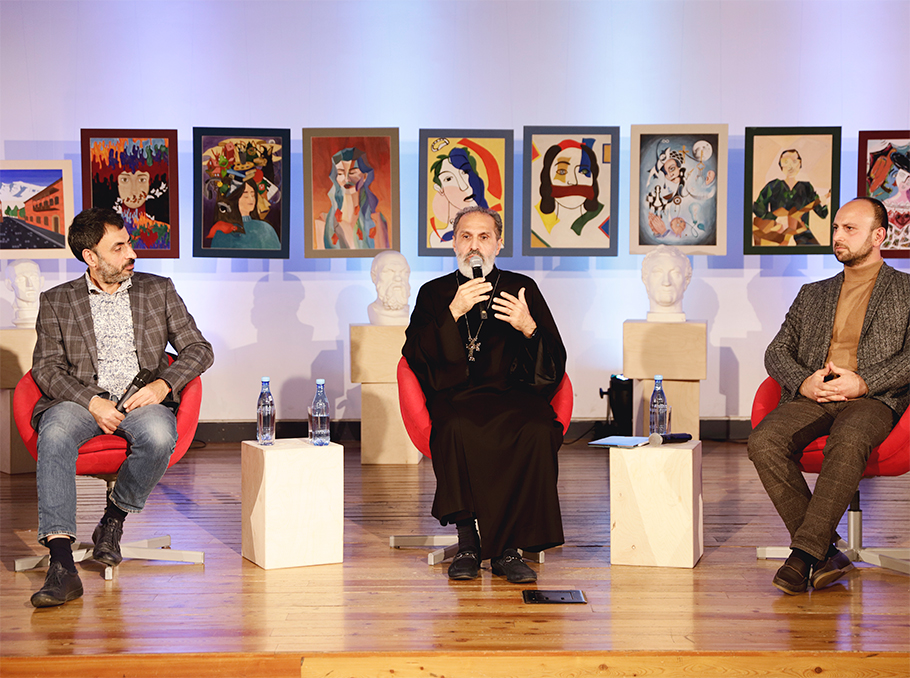
Healthy doubt and healthy criticism have a place in the life of any believer. Imagine how naive and superstitious our faith would be if we were not guided by doubt and healthy skepticism. In that case, we would immediately accept any supernatural phenomenon as truth.
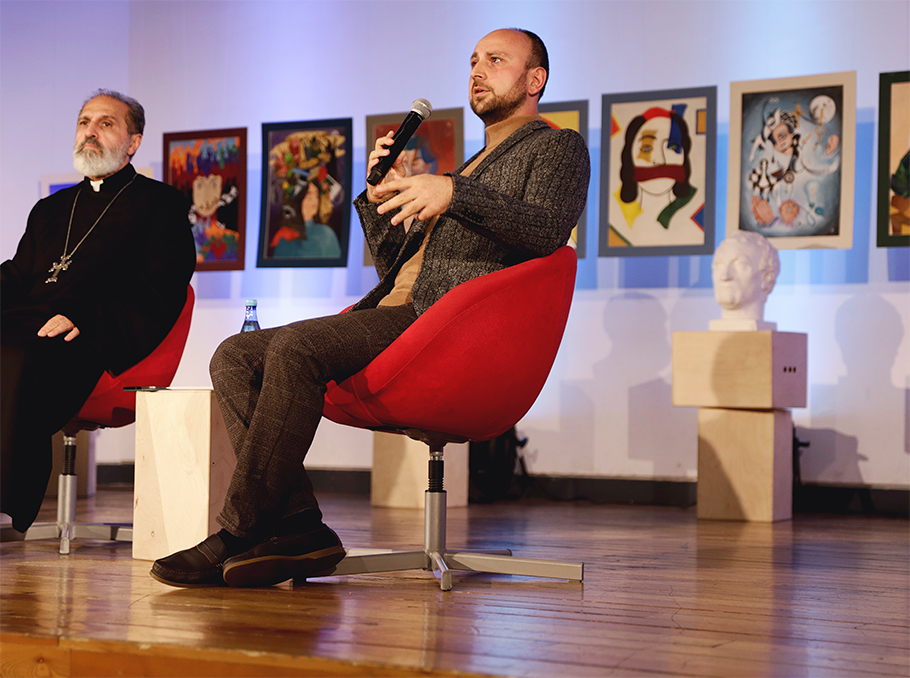
God, being the supreme being in this universe, the supreme intellect, is not afraid of our critical, questioning gaze. In the In the Gospel, Christ also says, "Search and see," meaning we must first examine everything that we want to believe in, that we want to be convinced of. In Paradise, Adam and Eve tasted the forbidden fruit, and they were not prohibited from doing so. Why? Because God gave man the opportunity to exercise his free will, his reasoning, and what he did not accept in faith—did not believe God, that he should not taste the fruit—was allowed for him to experience and be convinced of it.
In philosophy, agnosticism is interpreted as the denial of the possibility of knowledge or cognition; it is impossible to know anything in any field. When this is transferred to the realm of religion and faith, it means that we do not consider it possible to speak about the existence of God—this is neither provable nor refutable. This, I believe, is the most extreme and dangerous approach, as the agnostic completely removes the necessity of thinking about God from their mind. Our society is full of agnostics.
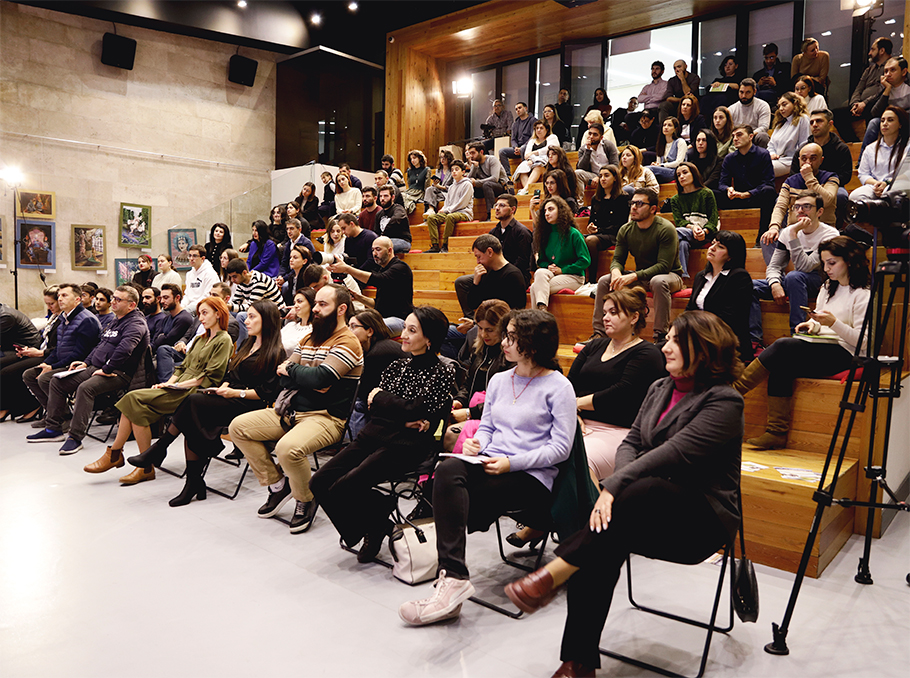
Atheism, in ancient times or the Middle Ages, was something to be rejected and hated by society. There were no people who would declare themselves atheists; all philosophers and scientists, in one way or another, believed in God, gods, or the influence of supernatural forces. It was only during the Enlightenment that Voltaire and other Enlightenment thinkers, believing in the power of reason, declared that they could explain everything through reason and science and no longer needed to think about God.
Atheism does not imply a complete ideology; each person subjectively has arguments that lead them not to believe in God or are opposed to the concept of God. But even atheists, despite their opposition, are still engaged in dialogue with God. This means that it is always possible for their views and approaches to change, and they may become fervent believers. History is full of such cases.
Aram Pakhchanyan:
The life of atheists is a fight against windmills; no one wants to fight with them, but they continue the fight because their life's purpose, their mission, is to open people's eyes. In their view, people see the world wrongly, but they cannot say what the real truth is.
This was the entire idea of Soviet scientific atheism: first, we free people from the idea of God’s existence, and then we fill that empty space with something. But instead, people started to believe in other things; many believed in capitalist ideas, turned the country upside down, and made it capitalist. We must understand that if you deprive a person of spiritual values, that empty space will first be filled with material things. After that, it becomes much harder to bring that person back.
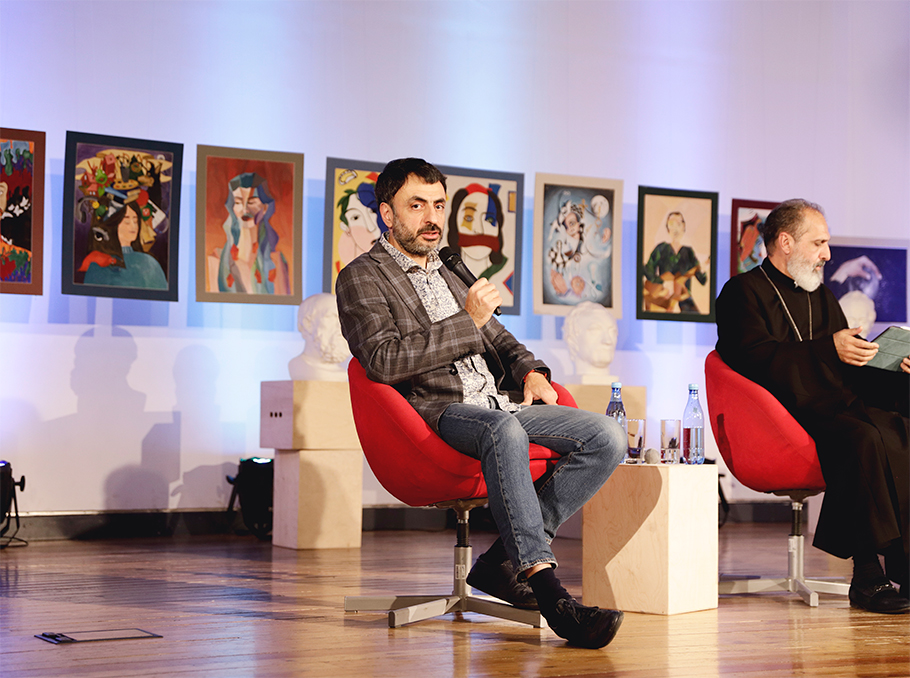
The main problem of skeptics is that they are constantly fighting with themselves. If you constantly doubt what you are trying to rely on, you start searching for another foundation, and this continues throughout life.
Skeptics are quite nervous because they are constantly in a state of inner doubt; the inner doubt gnaws at them, consumes them. When I talk about critical thinking with children, I always say that you should not doubt everything, but your own perception, because that is when you make a decision. Belief is much more important than disbelief. The impact of wrong belief on a person is less than that of absolute disbelief. Believing is healthier than not believing.
The harshest image is that of the agnostic, because they don’t know what they believe in; they constantly change their beliefs. But no one believes in a person who has no principles.
Fr. Mesrop Aramian:
These theories are not inherently self-sufficient. They either openly reject or avoid giving a clear answer, or they question certain facts about which they have no knowledge. It is very difficult to reject God, especially when you do not know whom you are rejecting, what you are rejecting.
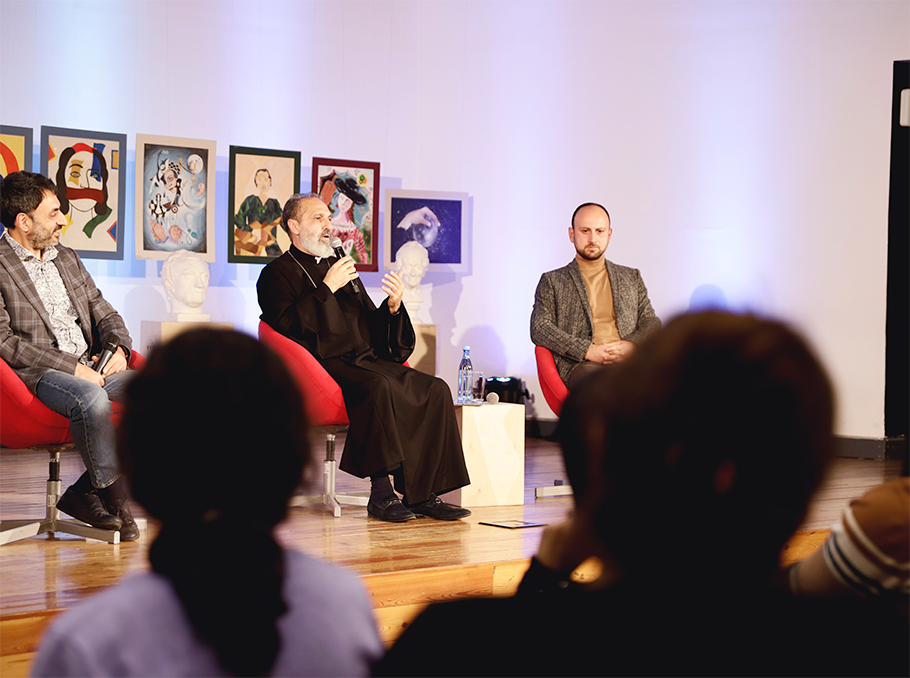
Sometimes scientists try to enter this field with their authority, despite lacking basic knowledge in this domain. When I was studying at the Moscow Institute of Physics and Technology, my scientific supervisor was Academician Ginsburg, a world-renowned scientist and Nobel laureate. He was a staunch atheist and tried to engage in a public debate with a famous Russian theologian, Fr. Kurayev. Ginsburg ended up in a terrible situation, completely embarrassed due to his lack of basic knowledge. The same applies to Bertrand Russell’s essay Why I Am Not a Christian. It is astonishing that a scientist of such caliber has such superficial views on Christianity and spirituality, yet he tries to voice these views and influence inexperienced minds.
These three atheistic perspectives are often not well-founded and have major gaps from the point of view of spiritual knowledge. They also contradict each other. There is no unified atheistic front, no ideological unity. This is not for something, but against something. Therefore, it is difficult to imagine that these ideas can realistically lead people.
A Strong Spiritual System as a Counterbalance to the Destructive Influence of Technologies
Aram Pakhchanyan
Schools and universities now teach to think independently, question everything, and make decisions on one’s own. But they do not address an important question: On what basis are you questioning, where do your beliefs come from? When a young person begins to delve into their own beliefs, they discover that their mind is filled with a chaotic reality, mostly formed from unconscious perceptions from childhood. But they are told: you are your own authority, and from this height, judge others.

This is compounded by skepticism: I cannot say anything to anyone until I have convincing evidence. Even if I have a strong feeling, which is personally unclear to me as a young individual, I remain silent about it. As a result, this spiritual experience is not shared, it is silenced by the imperative that one must be convincing.
Jung says that, apart from consciousness and the subconscious, there is a superconscious—a place accessible only to the spiritual reality and where the perception of God resides. In other words, a "mechanism" for faith in God is created within the human being. And if you do not guide humans to fill this space based on the accumulated experience of humanity, they will fill this gap based on their own search, often returning to the standards of ancient times, dark eras, and polytheism. Anything can arise in that space, but something will arise. There is a strong struggle for "something." Many want to create what they need, and young people fall into various traps.
Fr. Mesrop Aramian
Critical thinking does not mean a spirit of opposition. Critical thinking only has value if it leads to self-awareness, self-examination, and self-criticism. Otherwise, you will never blame yourself, but will blame everyone else. However, a person’s mental health begins when they recognize their mistakes, can have healthy self-criticism, and liberate themselves from those mistakes.
But I do not see this toolkit in modern education. People finish schools and universities, but emotionally, in terms of human development, they may have the emotional maturity of a kindergarten child. Their minds are burdened, but emotionally, they are underdeveloped, never having worked on themselves or analyzed their mistakes.
If education does not provide the opportunity to find oneself, it becomes dangerous; it constantly distracts you from the truth. Modern humanity, especially the youth, can be characterized by one word—absence of presence. They are elsewhere—in their phones, in virtual spaces, scattered, disintegrated. Recently, I was talking to a very prominent mathematician who works on serious mathematical studies, especially in social fields. He was telling me about these technologies, how several synchronized lies are injected into virtual spaces and how they distort human psychology. And we don’t even know about it. A person must have a solid spiritual system and deep self-awareness to be able to guard against the destructive effects of technology.
Truths That Science Cannot Reveal
Vardan Aslanyan
Science can neither deny nor confirm the existence of God. The necessity of faith is not within the realm of science. The same scientific fact or discovery can serve both atheists and believers. For example, discoveries in physics can strengthen a believer’s faith, affirming that if the universe has such an order, then there must be a Creator. On the other hand, an atheist might say, "If we are intelligent enough to explain all this through science, then we don't need a Creator."
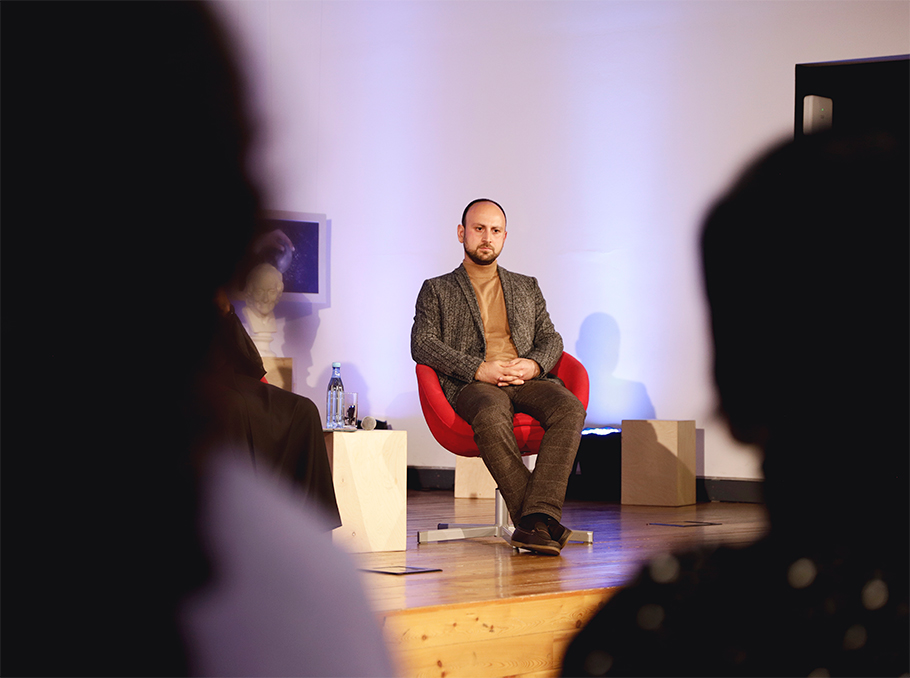
The existence of God is both an obvious fact and hidden at the same time. It is genius divine providence. It wouldn’t be difficult for God to thunder from above the clouds, revealing His existence to all of us, and we would believe. But how? Forcefully? God does not want forced belief or forced love. God allows everyone to come to Him voluntarily.
Aram Pakhchanyan
Opposing faith as a means of knowledge to science was the most significant step toward the destruction of science by those who did not actually know or understand science but decided to use it to advance their personal interests and fight against faith.
Science is one of the forms of knowledge, and absolutizing it is very dangerous. Today, public faith in science is gradually decreasing because science itself is turning into a cult of science, becoming superstition. We begin to expect from science what it cannot provide, and then there are people who, in the name of science, start to give us what we expected, while we do not know what is behind these people. Maybe they are scientists who have achieved something in their narrow fields, but that doesn’t mean they can step onto a stage and speak about everything, make claims about the world and God, and expect us to believe them.
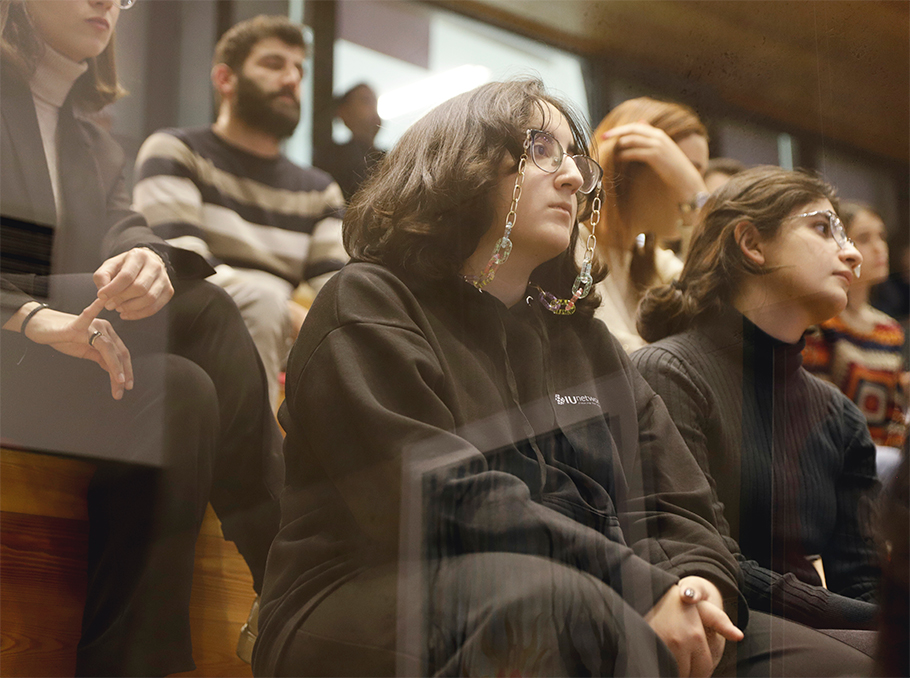
Science has become an object of worship, and the funding of science has turned into "let them tell us something new and exciting so that we can get excited and give money." Scientists, absorbed in positivism and rejecting the possibility of knowing the truth through other means, insisting that only they bring the truth, have placed themselves in the role of a clown. Meanwhile, scientists who do not think this way have become a minority. In the field of biology, believing biologists are literally persecuted, their articles are not published, and their words are subjected to counterattacks.
Fr. Mesrop Aramian
Is science the only thing that speaks about the truth or the only path to uncovering the truth? Not at all—rationalism is a much broader concept than science. Science answers many narrow questions about life. Shakespeare, for example, has revealed far more truths about life than all scientists combined. You can live without science, but you cannot live without these truths. Knowledge is a much broader process than so-called "scientific knowledge.
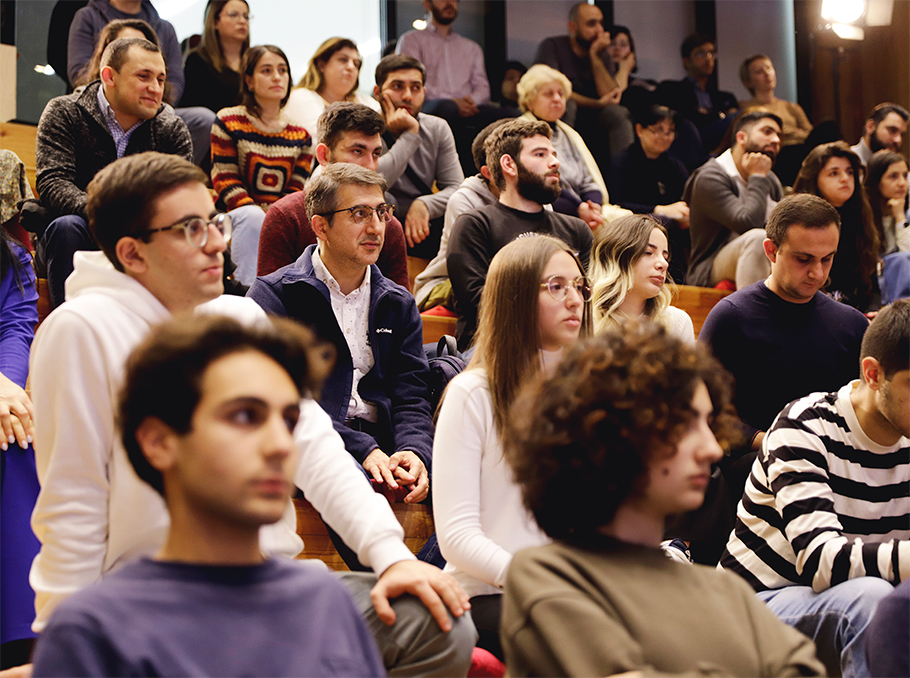
I greatly respect the scientific method, and even when communicating with students, I always say, "Try applying the scientific method to self-awareness." There is an important role in the scientific method. I must conduct an experiment, obtain results. But in order for my results to be objective, I need an independent observer. If there is no independent observer or if I am my own observer, I will constantly interfere with the experiment’s results, and they won’t be credible. Imagine applying this concept to self-awareness. You are not a good observer for yourself; you need an independent observer who is perhaps a very deep spiritual person, a saint, an important authority who will not deceive you and will always tell you the truth. If I try to absolutize this concept of the observer, I will come to the idea of God, to the necessity of God's existence in my life. Without this absolute divine perspective, we will never reach objective truth.
Lusine Gharibyan
Photograph by Agape Grigoryan
